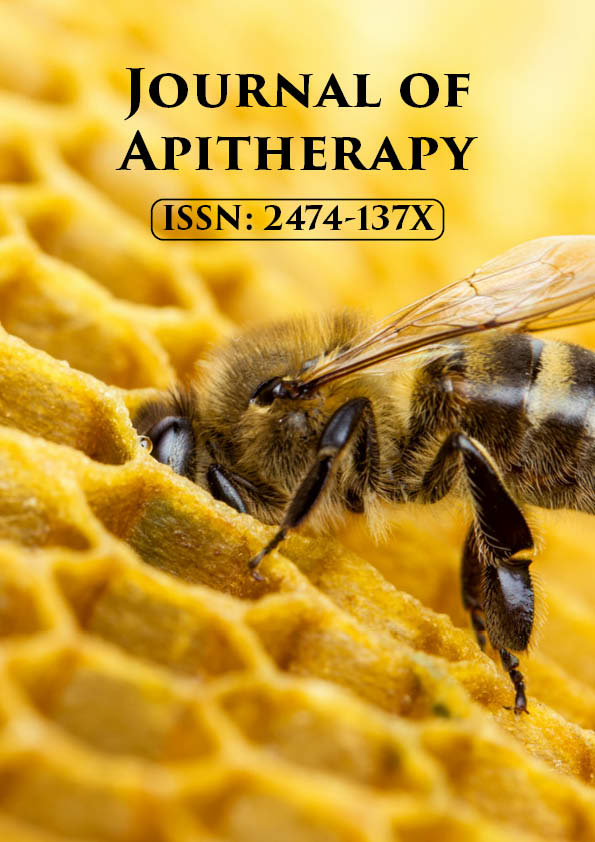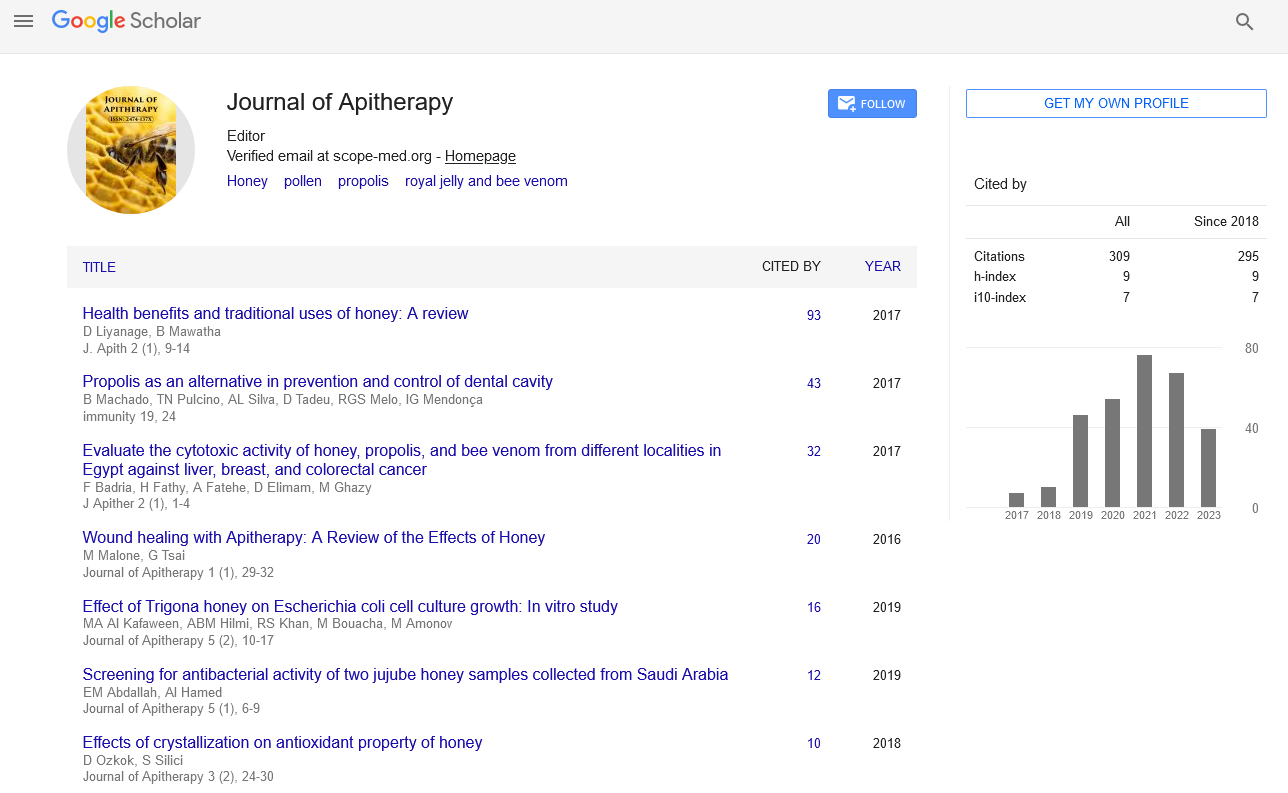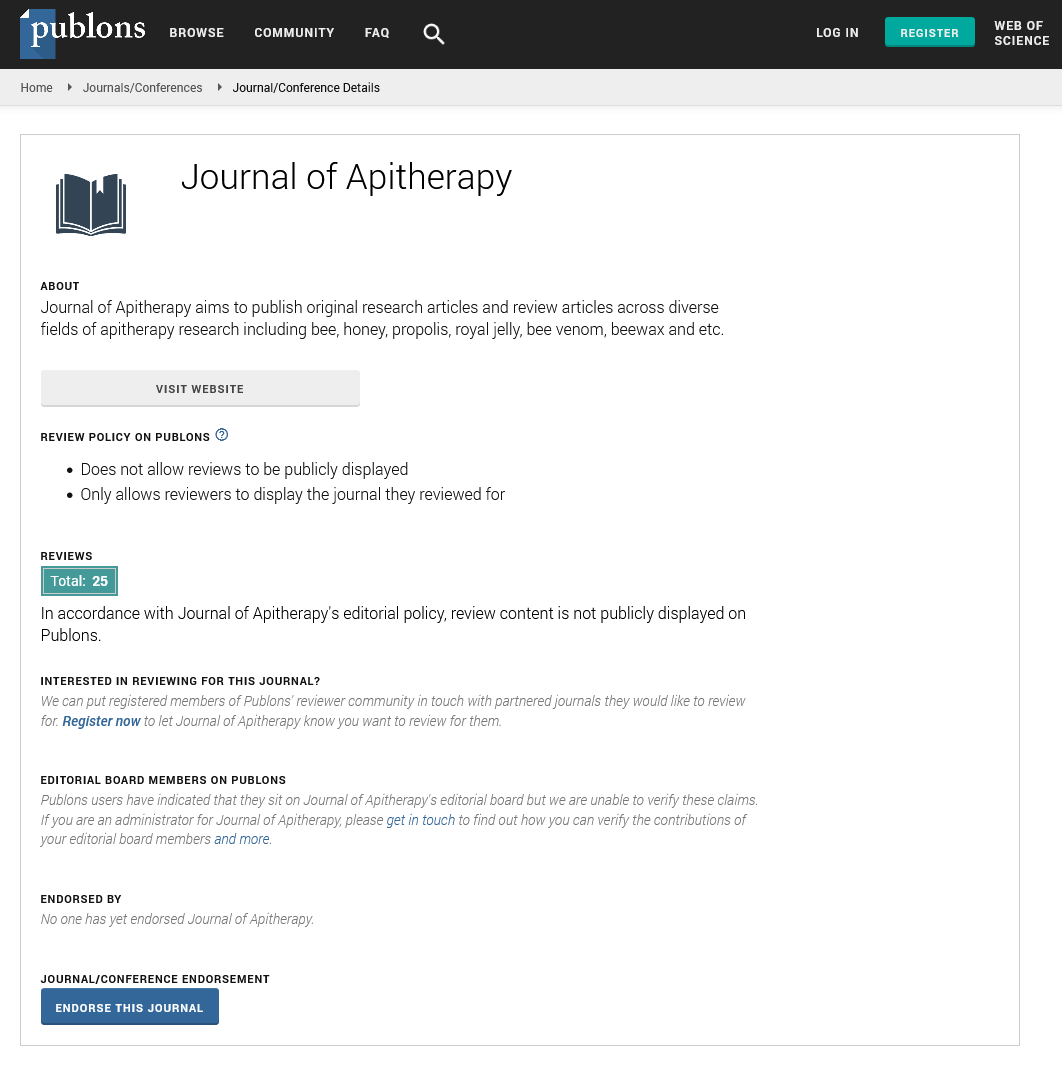Lebanese Propolis from Different Regions: Phytochemical Screening, Antioxidant Activity and Effect against Cancer Cells
Abstract
Doha Kabani, Ali Jaber*, Fadi Abdel Sater, Ghassan Ibrahim and Edmond Cheble
Aim: Apitherapy, preparations, and food and beverage additives all employ propolis. Chemical content, biological activities as well, highly depend on the origins of propolis. This study aimed to compare the Total phenolic contents, antioxidant activity, and cytotoxicity to cancer cell lines of Lebanese propolis extracts from four regions.
Materials and methods: The methanolic extracts of propolis collected were prepared in the first step. The samples were subjected to phytochemical screening for the first time. In a second time, samples were tested for total phenol content by the Folin–Ciocalteau method, and radical scavenging activity using a spectrophotometric method. Anticancer activity was assayed on human tumor cell lines MDA-MB-231 and A549, using MTT assay.
Results: The results show that the estimation of the total phenolics varies between 3.60 mg and 73.52 mg of GAE / g of propolis extract and / g of propolis extract. The inhibition concentration values of 1, 1-Diphenyl-2-picrylhydrazyl radical scavenging and ascorbic acid in propolis in Fakeha, Debaal, Wadi Faara, and Qlaileh were 25.9 ± 5, 26.3 ± 4, 57.1 ± 10 and 729.7 ± 42 (μg.mL−1), respectively. Additionally, propolis extracts 1 mg.mL-1 from two regions, namely Wadi Faara (31.71%) and Debaal (23.3%) demonstrated the inhibitory effect on proliferation of A549 cancer cell lines at 72 hours in a dose-dependent manner. However, these extracts show the opposite effect on breast cancer cells.
Conclusion: These results are of interest since Lebanese propolis from some regions has antioxidant properties and decreases the percentage of cell viability of human tumor cells A549; thus, it has the potential to contain some chemical compounds acting as an anticancer drug.
HTML PDF






